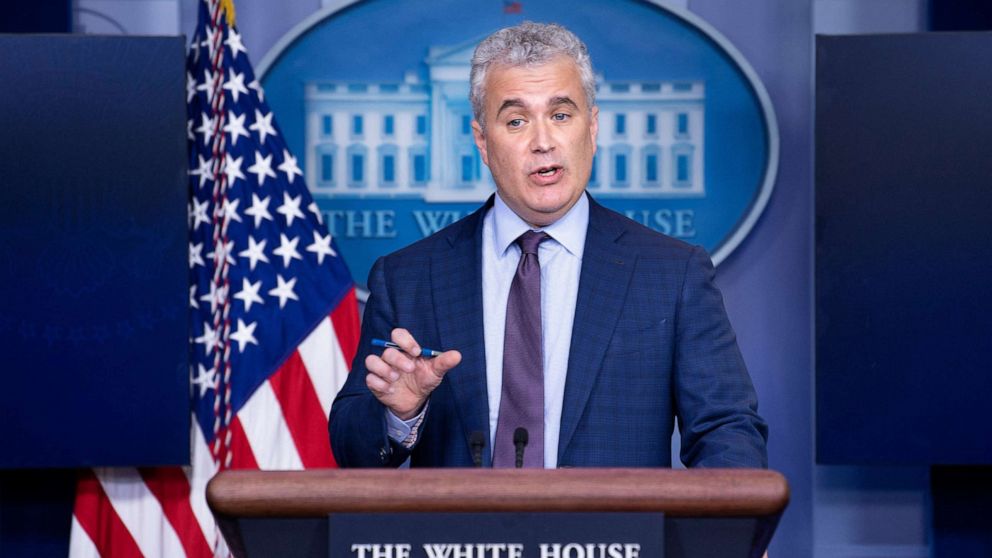White House official acknowledges younger Americans are 'less eager' to get vaccinated
The lead White House COVID-19 response coordinator acknowledged Sunday that younger Americans feel less vulnerable to COVID-19, making them less likely to get vaccinated.
"Younger people, particularly those in their 20s, have felt less vulnerable to the disease and, therefore, less eager to get shots. They were made eligible later so they have not been eligible as long and we continue to see hundreds of thousands of young people vaccinated each week," Jeff Zients told ABC "This Week" Co-anchor Martha Raddatz.
"If you are vaccinated, you're protected. And if you're not vaccinated, you're not protected. And that's particularly important for everyone, including young people, in light of delta variant," Zients added.
However, in a new ABC News/Washington Post poll, among those not vaccinated, 74% said they probably or definitely won't get a shot, which is up from 55% in April.
The high percentage of unvaccinated people who do not want to get a shot is raising concerns that vaccine rates could remain stagnant as the highly transmissible delta variant of COVID-19 spreads across the country. It's estimated that the delta variant was found in approximately 26% of new coronavirus cases in the U.S.
"Our polls even show that 74% of those people will probably not or definitely won't get a shot. So what does it mean for getting rid of the virus nationwide? Will it continue to be with us indefinitely?" Raddatz asked.
"We are seeing increases in cases in those areas in the country where there's lower vaccination rates. So, it's really important that people get vaccinated," Zients responded. "The good news is confidence in the vaccine -- those saying they're willing to get vaccinated -- has increased across time as more and more people know people who've been vaccinated and can see the benefits of being vaccinated."
This type of encouragement might be working for some, including 20-year-old Ally Kirk of West Virginia, who told Martha Raddatz earlier this week she changed her mind and decided to get vaccinated.
"A lot of my friends started getting it. My parents were vaccinated. I felt a lot more comfortable with it. I did some research on my own. And I felt that it was time for me to get it. I was ready. I'm ready to move past COVID and get on with life back to normal," Kirk told Raddatz.
"We do have a lot to celebrate," Zients said Sunday. "We are much further along than I think anyone anticipated in this fight against the pandemic," adding that 90% of adults 65 or older have received at least one shot of a COVID-19 vaccine.
But Raddatz pressed Zients for a more direct answer on the impact the unvaccinated will have on the nation's fight to end the pandemic.
"But what does it mean for the nation if we have all these unvaccinated people who say they're just not going to get it?" Raddatz asked.
"Well, we are -- we are vaccinating millions of Americans each week. And we're going to continue to do that. We're going to continue to drive up the vaccination rate and we're optimistic that more and more people will get vaccinated," Zients responded.
As the Biden administration has officially fallen short of its goal to fully immunize 160 million Americans and to ensure 70% of adults get at least one shot by the Fourth of July, Raddatz also asked Zients about the mixed messaging of President Joe Biden preparing to host more than 1,000 first responders at the White House for Independence Day.
"I assume they're taking precautions. But is having large crowds gather really the right message right now?" Raddatz asked.
"The event at the White House is being done in the right way. It's an outdoor event with testing and screening. Vaccinated people are not wearing masks. Unvaccinated people masked," Zients responded. "That said, we are doubling down on our efforts. Across the summer months, we will vaccinate millions more people because you need to get vaccinated to be protected against the Delta variant, and against this disease overall."




